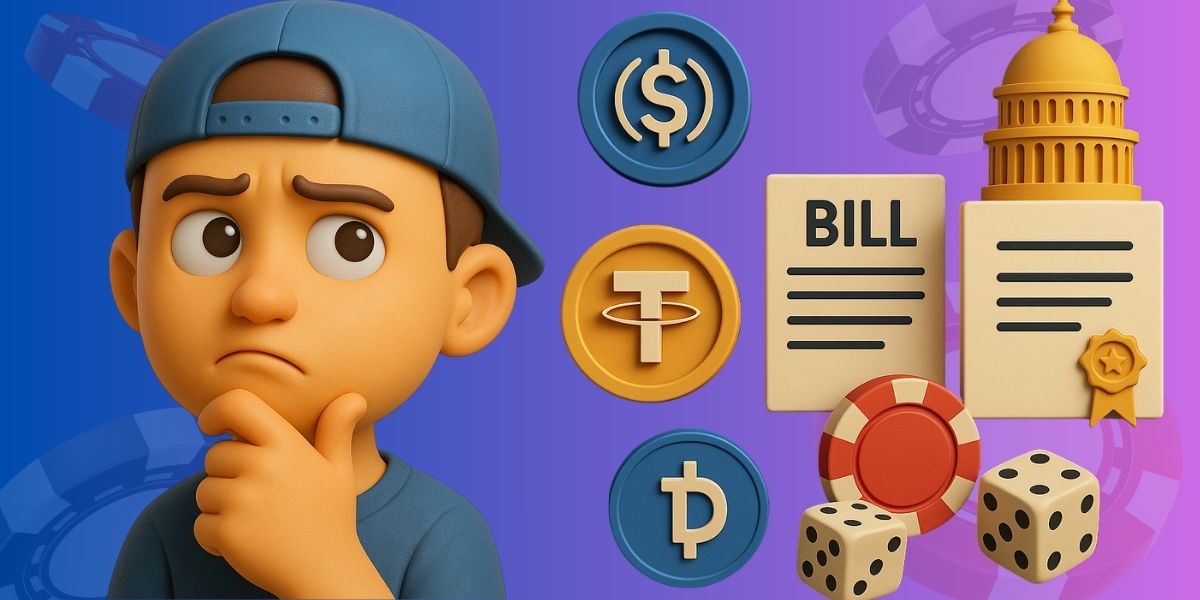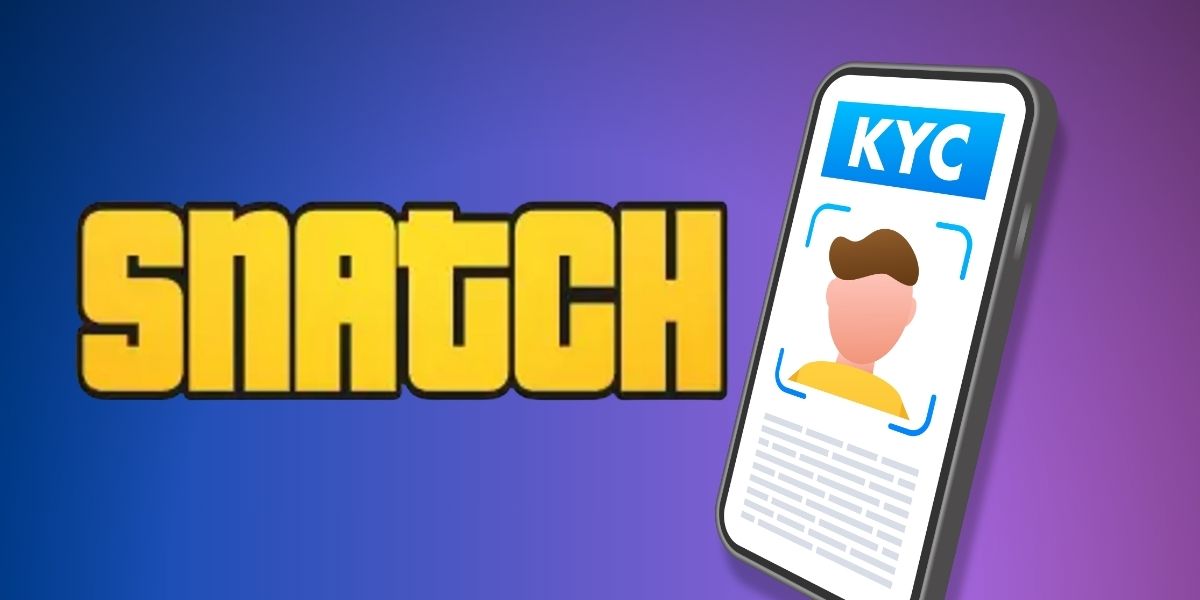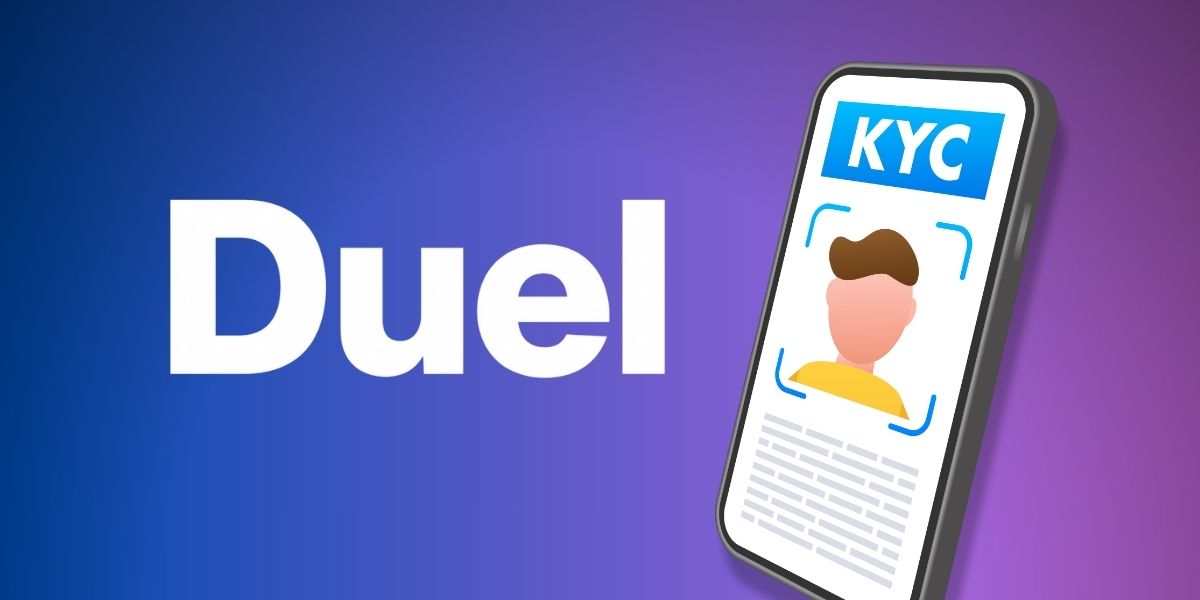
Impact of New U.S. Stablecoin Laws on Global Crypto Gambling
Stablecoins are the lifeblood of crypto gambling. Just look at how casinos rely on Tether (USDT) and USD Coin (USDC) for fast, stable deposits.
As the U.S. is rolling out new federal rules like the GENIUS Act, casinos worldwide are watching closely.
The new rules echo the MiCA regulation that just shook up Europe, and everyone’s wondering if it’ll trigger big changes in how players move money or if it’s business as usual for offshore crypto gambling.
🔑 Key Takeaways
- The GENIUS Act sets strict federal rules for payment stablecoins, similar to Europe’s MiCA regulation.
- Offshore crypto casinos may need to tweak compliance and payment methods, but won’t face instant disruption.
- Regulated stablecoins like USDC could gain trust, while riskier tokens may lose ground.
- Most casinos will adapt quietly, so don’t expect an overnight revolution, but watch for long-term shifts.
What is the GENIUS Act?
The GENIUS Act is the first major U.S. law to give payment stablecoins a clear federal framework.
The stablecoin bill requires every dollar-pegged token used for payments to have 1:1 backing with safe, highly liquid assets, like cash or U.S. Treasuries.
Issuers must also run monthly audits and meet tough anti-money-laundering standards.
After the MiCA regulation hit Europe, the U.S. is catching up, hoping to bring order and trust to the wild world of stablecoins.
If it passes, it could turn USDC and similar coins into digital cash with the backing of federal law, setting a global benchmark for crypto gambling and payments.
Will it impact crypto gambling and if yes: how?
Yes, the new U.S. rules will affect crypto gambling, but not in a way that shuts everything down. Here’s what’s likely to happen:
- Higher trust: Well-regulated coins like USDC may become more popular at legit casinos.
- Compliance pressure: Offshore and gray-market casinos might tighten up KYC and transaction monitoring, especially for big withdrawals.
- Less tolerance for “shady” coins: Unregulated stablecoins could be delisted or get higher-risk labels, shrinking their use for gambling.
- Payment shifts: Some casinos may start adding euro or local stablecoins, especially for European players dealing with MiCA’s fallout.
- Innovation: Expect to see more experiments with decentralized stablecoins and privacy-focused tokens, though adoption will take time.
Ultimately, while compliance and payment flows will get more complex, the demand for stable, fast gambling deposits isn’t going away.
Casinos and players will adapt. It’s in their best interest, after all.
Will the GENIUS Act pass?
Right now, the GENIUS Act has strong bipartisan support in the U.S. Senate and is being debated in the House.
Most experts expect some version of it to pass, especially after the EU’s MiCA rules showed lawmakers that the rest of the world isn’t waiting around.
Even with pushback from certain regulators who want even stricter rules, the crypto and fintech lobbies are pushing hard.
Unless there’s a last-minute snag, U.S. stablecoin laws should become a reality within the next year.
How will crypto casinos react and will there be groundbreaking changes?
Don’t expect anything dramatic right away. Most crypto casinos, especially those based offshore, are used to rapid regulatory shifts and already juggle compliance across multiple regions.
They’ll likely adjust by tweaking which stablecoins they accept and tightening up the KYC requirements for high rollers.
Big, reputable brands might embrace USDC and regulated options, while others keep offering less restricted choices like DAI.
Over time, new payment methods could emerge, but for now, it’s mostly business as usual.
Final words
As of right now, picking a cheap network for your stablecoin transfers, like TRC-20 or BEP-20, is probably a bigger deal than any new regulation.
The GENIUS Act might shift things down the line, but for most players and casinos today, it’s all about low fees and fast deposits.
Crypto gambling isn’t slowing down. Instead, it’s just adjusting like it always does.








